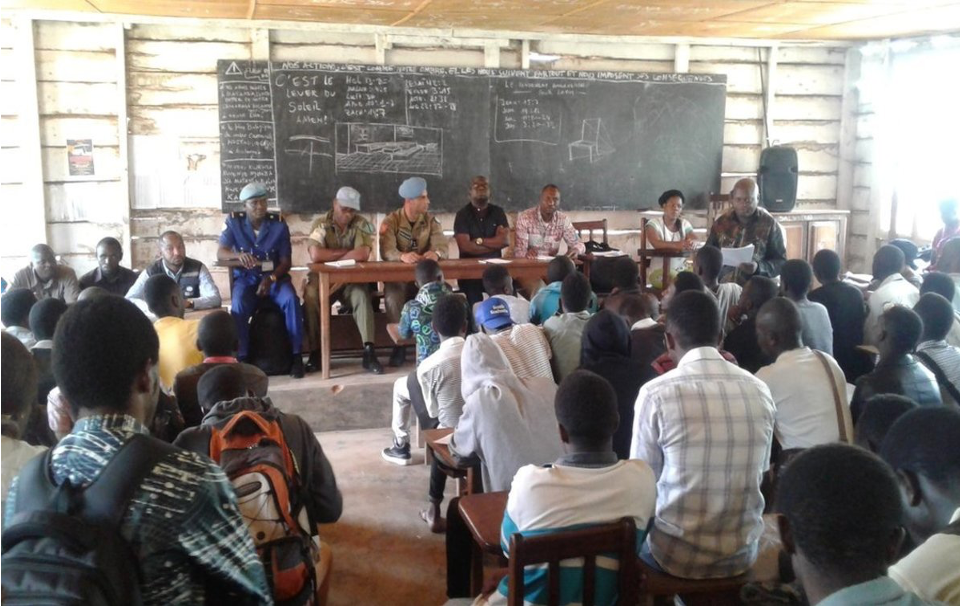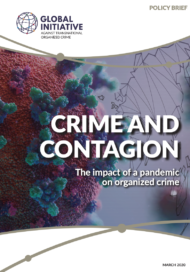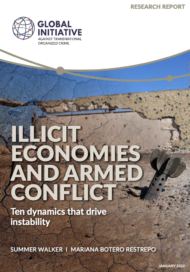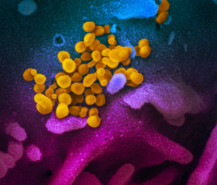Posted on 15 Apr 2020
UNPOL’s coordinator of Serious and Organized Crime, Bruno Isohi Shioso, explores how UN Police is drawing on its experience in containing Ebola to help fight COVID-19 in fragile contexts.
As countries scramble to react to the unprecedented scourge of the novel coronavirus, the United Nations (UN) has played a central role in providing resource mobilization, coordination and global leadership. These efforts are focused on some of the world’s most vulnerable regions and people, who are particularly threatened by the COVID-19 pandemic.
And while the UN’s strategy is appreciated in the light of its developmental agenda – as development and disease are well linked – COVID-19, a highly contagious disease, is also an international security threat, if not a national security challenge facing many individual countries.
Some of the most ambitious UN deployments are security related and take place in the realm of peace operations. Currently, 12 000 UN Police (UNPOL) officers are deployed across 16 peace operations and political missions, some of which are located in remote, vulnerable and disadvantaged contexts where livelihoods are threatened every day owing to lack of basic security. As a result of conflict dynamics, state institutions are often dysfunctional, and law and order deficient. In some instances, basic infrastructure is non-existent – which is conducive to the spread of infectious diseases. In such settings, UNPOL officers work alongside military and civilian partners to resuscitate governance and law and order as a lifeline to citizens.
The COVID-19 pandemic has stretched this model to its limit. A number of new responsibilities have shifted UNPOL’s primary focus from peace and security to public health in an effort to contain the virus. This has necessitated a quick recalibration, with the focus now on isolating people, detecting and tracing the virus, and general sanitation.
Law-enforcement cooperation is needed for the effective implementation of lockdowns, social distancing and quarantine measures. In fact, many public-health laws have penal sanctions, which can be enforced by agencies within the criminal-justice system. These dynamics have pushed the law-enforcement community, including UNPOL, to the centre of the fight to contain COVID-19.
This won’t be the first time that UNPOL’s capabilities have been deployed in epidemic responses. The UN multidimensional component was at the forefront of collaborative efforts in containing and managing local and regional epidemics of challenging magnitude, including during peace operations in Liberia and Sierra Leone. More recently, in the Democratic Republic of Congo (DRC), UNPOL formed part of the public-health and humanitarian response to Ebola, a deadly close-contact contagious disease with no known cure. These efforts continue through MONUSCO (the UN’s Stabilization Mission in the DRC).

Adapting to the Ebola epidemic in real time, MONUSCO components – including UNPOL – facilitated access to health-and-security services in remote areas, most of which are engulfed in conflict. Through its Ebola Task Force, UNPOL mobilized resource and supply-chain logistics for critical health supplies to the frontline of the epidemic.
The task force assists practitioners with public-health outreach and awareness initiatives, and helps to coordinate key partners and stakeholders. It also monitors intervention efforts and the epidemic itself using investigative and geolocation tracking capabilities. These activities are organized and structured around three standing commissions of surveillance, communication and security.
The best practices learned during the DRC Ebola epidemic are informing UNPOL’s activities related to the COVID-19 outbreak. This comparative advantage may provide a model for similar interventions in other national and local enforcement contexts.
As COVID-19 continues to spread, Africa is presumed to be the next frontier of the fight, and countries are bracing for the worst. UNPOL is mobilizing – given the difficulty of remote working conditions – by disseminating critical COVID -19 knowledge to its frontline police officers. This strategy is part of the ‘whole-of-UN’ approach, which encompasses the three pillars of the UN and coordination among agencies, to mitigate the pandemic in these highly fragile environments.
At the local level, UNPOL deployments will have to adapt their efforts by working with host states towards effective mitigation of the pandemic. With mandatory lockdown measures being a necessity for containment of the virus, there is an exigent need to address elements of organized crime that take advantage of communities in quarantine and in contexts of overstretched public resources.
In terms of contingency planning, several key areas should be mapped out as a matter of priority risk mitigation. These include the hoarding of essential goods to drive up consumer prices, the smuggling of essential goods, the sale of counterfeit medicine and vaccines (in particular scams that offer the next ‘wonder drug’ or ‘immunization’ against COVID-19), and heightened provisions for general security – particularly border control – in this unprecedented era of fortified borders.
As frontline law-enforcement service providers, UNPOL officers can offer hope and support to communities affected by COVID-19 by policing with decorum and a human-rights-based approach, as espoused in UNPOL doctrine. These rights-based law enforcement best practices may be shared with the rest of the global policing community.
And amid this effort, the safety, health and overall well-being of UNPOL officers remain of utmost importance. The divisional headquarters has disseminated COVID-19 guidance to aid the policy and practice of police support in missions, including UNPOL’s back-stopping efforts to host states’ law enforcement agencies during the COVID-19 containment countermeasure. And UNPOL is providing critical personal protective equipment to all its officers, as members of the frontline first responders. These efforts by UNPOL are some of the many game-changing initiatives that collectively contribute towards safety, stability and public health in these vulnerable contexts.



